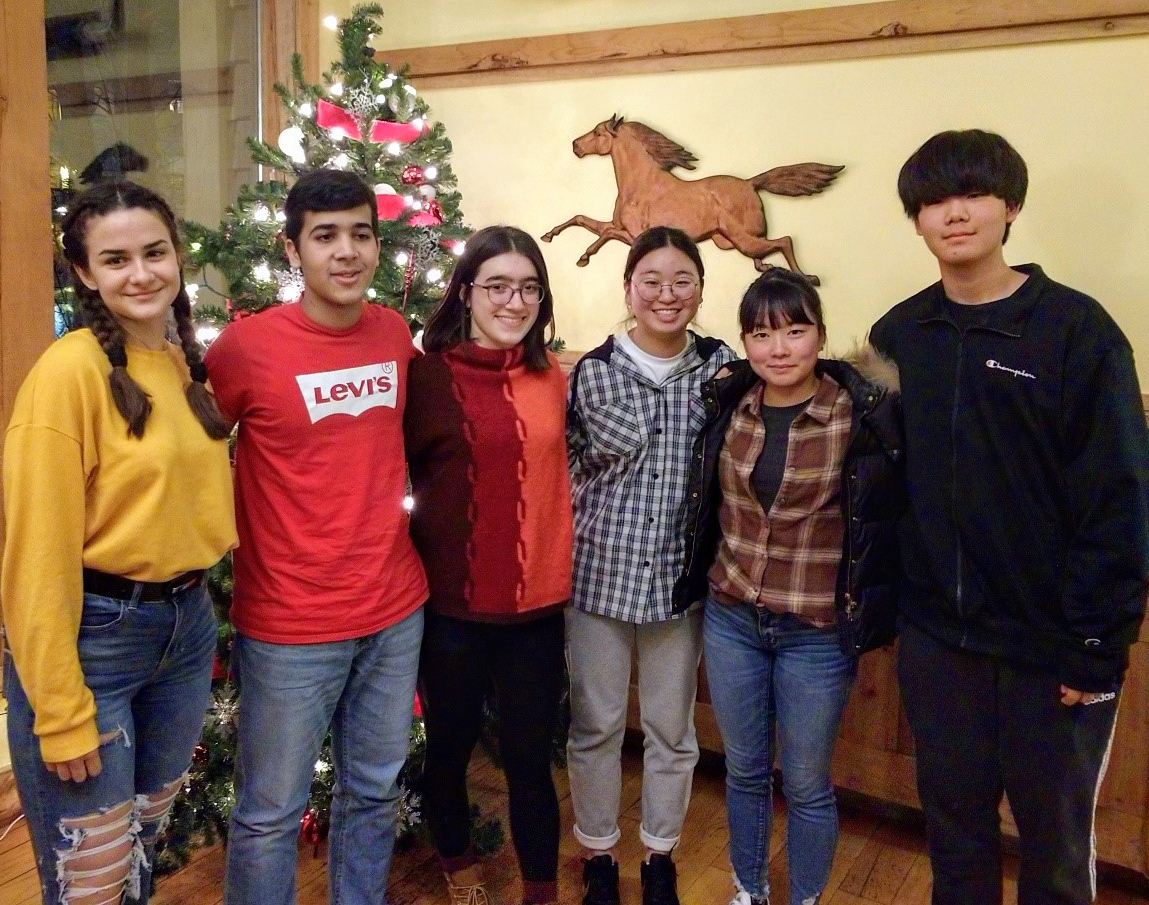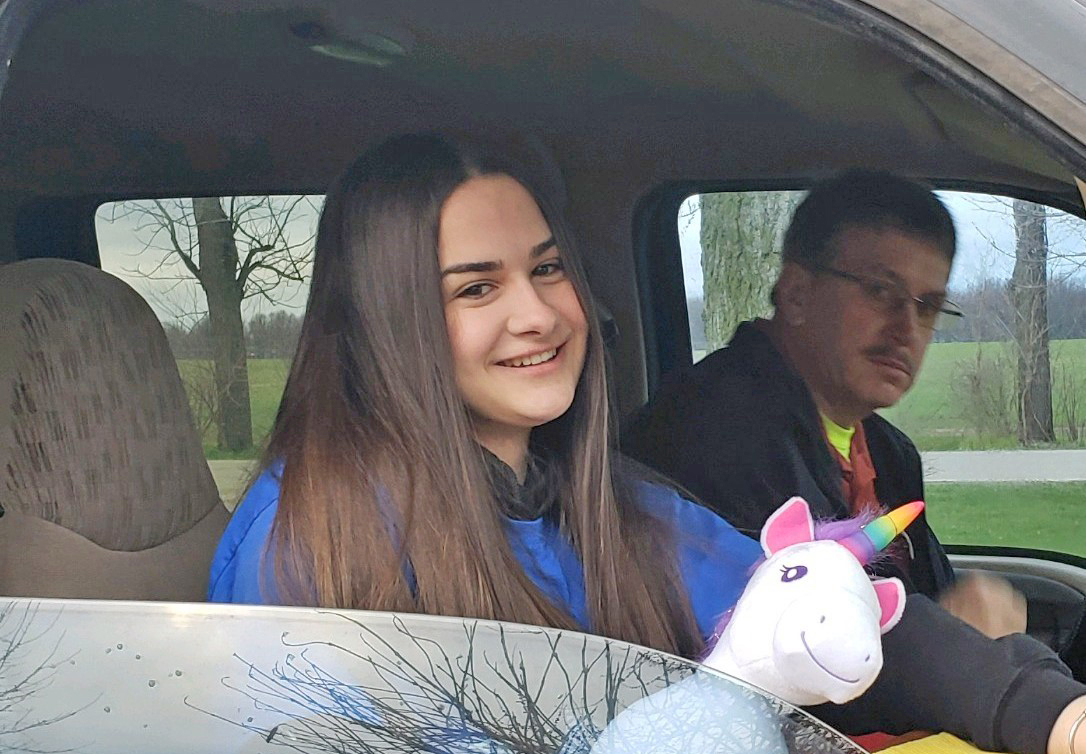Michigan 4-H International Exchange students talk about experiences in the COVID-19 era
International exchange students share concerns about being sent home during the novel coronavirus pandemic, the virus that causes the infectious disease COVID-19.

Michigan 4-H International Exchange Program partners with States’ 4-H International Exchange Programs to provide an opportunity to Michigan families to host international exchange students for an academic school year. The 2019-2020 exchange year wasn’t any different than any other year until early March 2020 when novel coronavirus, the virus that causes the infectious disease COVID-19, was gaining momentum. On March 12, 2020, Michigan Governor Gretchen Whitmer issued an executive order to close all K-12 schools to protect students from COVID-19. This is when the academic year program began to look profoundly different for six international exchange students in Michigan.
Michigan 4-H hosted six delegates this year: two from South Korea and one each from Japan, Turkey, Bulgaria and Egypt. The three delegates from Turkey, Bulgaria and Egypt are here with the Youth Exchange and Study (YES) program sponsored by the United States Department of State. During their year-long experience, all six of these high school-aged youth are here in the U.S. to attend school and participate in extracurricular activities while learning about culture.

On March 20, 2020, coinciding closely with Governor Whitmer’s executive order, States’ 4-H International Exchange Programs made the difficult decision to stop the 2019-2020 Korea and Japan Academic Year Program (AYP) exchange programs. The U.S. Department of State sponsored YES program is continuing the exchange program at this time.
How are these decisions affecting our delegates? Selin and Kristina share their personal struggles during this uncertain time in the world.
D’Ann (D): What are you doing with your time now that schools are closed?
Selin (S): My host parents are still working so I am reading books and doing Turkish studies and American studies. It is hard to focus on life here. It is very stressful not knowing if I am going home or staying and for how long. The YES program was until June but now I feel if I stay until June, I am stuck here until June since others are going home now.
Kristina (K): My host parents are home so we are playing games, cooking many things and watching movies. We have animals and open spaces so we can go outside for fresh air.
(D): What are your conversations like with your natural parents in Turkey and Bulgaria?
(S): I tell them I am safer here since we have property to go outside and not many people live by us. I had to show them what it looks like here to help them understand. They have never been here and don’t understand the culture, so I have had to explain things to them. My father has a heart condition, so it is better I stay here and not expose him to anything. I have no plan to return home early to Turkey at this time since Turkey’s borders are closed.

(K): My parents were worried I would get stuck here for one to two years. They wanted me to travel back with a group of other exchange students in case I get stuck somewhere in Europe. I think my parents wanted me to stay here but then other parents wanted to bring their kids home. My flight leaves April 5 with a group of 10 other Bulgarian exchange students.
(D): What information do you have about your home country’s restrictions during this time?
(S): I have heard that if people over the age of 65 are seen on the streets in Turkey, the cops are called to escort them back home. If I were to go back, I would need to quarantine for 14 days in a dormitory alone.
(K): In Bulgaria, we have 300 cases, so people are encouraged to wear a mask out. When I return home, I will need to quarantine for 14 days in my home.
During this unprecedented time, we are encouraging our international exchange students to enjoy the moments with their host families, find good in every day and tend to their emotions. It is good to discuss fears, feelings and the unknown with others around you. Local coordinators are checking in with them more frequently to make sure they are OK.
Michigan 4-H is excited to share the Remote Learning and Resources website. Enjoy these educational options. International conversations are available on Michigan 4-H International Exchange events page.
4-H grows international friends and families. If you would like to learn more, visit the Michigan 4-H website. To learn more about youth development programs, contact D’Ann Rohrer at drohrer@msu.edu or 231-845-3361, or the civic engagement leadership team at MSUE.DL.4HLeadership@msu.edu.
To learn about the positive impact of Michigan 4-H youth leadership, citizenship and service and global and cultural education programs, read our Impact Report: “Developing Civically Engaged Leaders.” Additional impact reports, highlighting even more ways MSU Extension and Michigan 4-H have positively impacted individuals and communities can be downloaded from the MSU Extension website.
Find other global educational opportunities on the MSU Extension Global and Cultural Education website. For more information about 4-H learning opportunities and other 4-H programs, contact your local MSU Extension county office.



 Print
Print Email
Email
